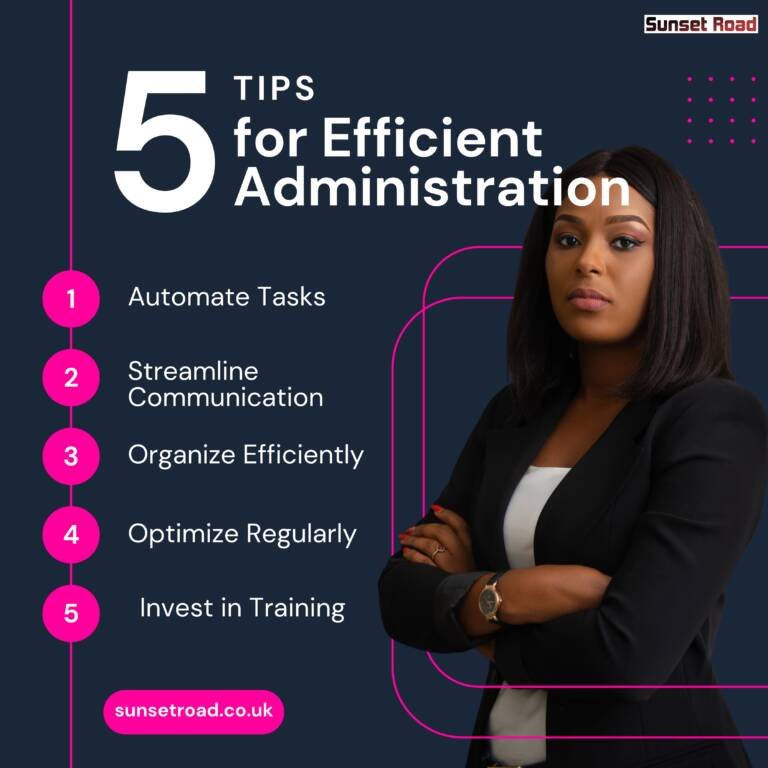Why Virtual Assistance is the Future for UK Businesses Seeking Cost Efficiency

In an increasingly digital world, UK businesses are constantly searching for ways to streamline their operations and reduce costs without compromising on quality. One of the most effective solutions to emerge in recent years is the use of virtual assistance. Virtual assistants (VAs) are remote professionals who offer various administrative, technical, and creative support to businesses. For UK businesses aiming to maintain efficiency while managing expenses, virtual assistance is quickly becoming an indispensable resource. This blog explores why virtual assistance is the future for UK businesses seeking cost efficiency.
The Rise of Remote Work and Virtual Assistance
The shift toward remote work was accelerated by the COVID-19 pandemic, but even post-pandemic, many companies have chosen to retain remote or hybrid work models due to their cost advantages and increased productivity. Virtual assistants have become an integral part of this remote workforce, allowing businesses to tap into global talent without the need for physical office space. Virtual assistance provides UK businesses with access to skilled professionals who can handle a range of tasks, from managing emails and scheduling appointments to handling customer support and managing social media. The flexibility of working with VAs means businesses can scale their support team up or down depending on their needs, without the overhead costs associated with hiring full-time employees.
Cost Savings on Staffing
One of the most significant benefits of virtual assistance is the reduction in staffing costs. Hiring full-time employees in the UK comes with several financial obligations, including salaries, benefits, taxes, and office space costs. According to UK employment law, businesses must also contribute to employee pensions and provide paid leave, which further increases expenses. In contrast, virtual assistants typically work on a contract or freelance basis, meaning UK businesses only pay for the services they need. This eliminates the costs associated with full-time employment, such as office space, equipment, and benefits. For example, a small UK-based e-commerce company might hire a virtual assistant to handle customer service during peak times, paying them only for the hours worked rather than incurring the fixed costs of a permanent employee.
Access to a Global Talent Pool
Virtual assistance opens up a world of talent beyond the local job market. UK businesses can hire VAs from anywhere in the world, allowing them to find the best people for the job at competitive rates. Countries with lower living costs may offer highly skilled professionals at a fraction of the cost of hiring locally, creating significant savings for UK businesses. For example, a UK-based marketing agency might hire a virtual assistant from a different time zone to manage its social media accounts overnight. This allows the agency to maintain a 24/7 online presence without needing to hire multiple shifts of local staff. The ability to source talent from different regions also means businesses can find specialized skills, such as graphic design or website development, at much lower rates than if they were to hire a UK-based professional.
Increased Productivity and Efficiency
Virtual assistants can significantly enhance productivity and efficiency by taking over time-consuming tasks, allowing business owners and employees to focus on core activities that drive growth. By outsourcing administrative tasks such as email management, scheduling, or bookkeeping, business owners can free up time to work on strategic initiatives, such as expanding their product range or developing new business partnerships. For example, a virtual assistant could manage a UK real estate agent’s appointment calendar, handle inquiries from potential buyers, and even assist with drafting property listings. This would allow the agent to spend more time meeting clients and closing deals, ultimately driving business growth.
Flexibility and Scalability
One of the key advantages of virtual assistance is its flexibility. UK businesses can hire VAs on an as-needed basis, adjusting the level of support according to their current workload. This is particularly beneficial for small businesses and startups that may experience fluctuating demand for services but cannot afford to hire full-time employees. For instance, a UK-based online retailer might need additional customer service support during the holiday season but may not require the same level of assistance during the quieter months. With virtual assistance, they can easily bring on extra help during peak times and reduce costs during slower periods without the complexities of hiring and firing employees. This scalability is a game-changer for businesses looking to grow. As a company expands, it can gradually increase the number of VAs it works with to meet growing demand without the need for large-scale hiring drives.
Reduced Overhead Costs
Hiring virtual assistants eliminates many of the overhead costs that come with traditional office-based employees. UK businesses do not need to provide office space, equipment, or supplies for virtual assistants, who typically work from home or co-working spaces. This is particularly beneficial in expensive cities like London, where office space rental is a significant business expense. A small digital marketing firm in the UK, for example, might operate entirely remotely by employing virtual assistants to handle tasks such as content writing, social media management, and client communication. This allows the business to avoid the costs associated with renting office space, purchasing computers, and maintaining utilities, all while still delivering high-quality services to clients.
Expertise in Specialized Tasks
Many virtual assistants offer specialized skills that go beyond basic administrative tasks. These could include expertise in areas such as digital marketing, graphic design, web development, content creation, or SEO. Hiring VAs with specialized skills allows UK businesses to access expertise they might not have in-house without the expense of hiring full-time specialists. For example, a UK-based technology startup may hire a virtual assistant with expertise in SEO to optimize their website and increase search engine rankings. This can result in a significant boost in online visibility, which in turn drives more traffic and sales, all without the high cost of bringing on a full-time SEO expert.
24/7 Operations and Time Zone Benefits
One of the unique advantages of working with virtual assistants from different parts of the world is the ability to maintain 24/7 business operations. This is particularly advantageous for businesses that serve international clients or need to provide round-the-clock customer support. By hiring VAs in different time zones, UK businesses can ensure that their operations are running smoothly, even outside of standard business hours. For example, a UK-based software company that serves clients in North America might hire virtual assistants in the US to handle customer inquiries and technical support during US business hours. This allows the company to offer real-time support across multiple time zones without requiring UK-based employees to work night shifts.
Enhanced Focus on Core Competencies
Outsourcing non-core activities to virtual assistants allows UK businesses to focus on what they do best. By delegating tasks such as social media management, administrative support, or data entry, businesses can concentrate on their core competencies, such as product development, sales, or client relations. For instance, a boutique legal firm in the UK might hire a virtual assistant to handle administrative tasks like scheduling meetings, processing documents, and managing client communications. This frees up the legal team to focus on providing legal services, improving client satisfaction, and growing the firm’s reputation in the market.
Risk Reduction and Flexibility in Contracting
Working with virtual assistants also reduces the risks and liabilities associated with traditional employment. Since VAs are typically freelancers or contractors, UK businesses are not responsible for offering employment benefits such as pensions, health insurance, or paid leave. This reduces the financial risk, especially for small businesses and startups that need to keep costs under control. Additionally, businesses have the flexibility to end contracts with VAs when their services are no longer needed, without the complexities of layoffs or severance packages. For example, a UK event planning company might hire a virtual assistant to manage logistics for a large event. Once the event is over, the company can end the contract without ongoing financial obligations.
Case Study: The Success of Virtual Assistance in the UK
Many UK businesses have already embraced virtual assistance with great success. For example, Time Etc., a UK-based virtual assistant company, has helped numerous businesses reduce costs and improve efficiency by providing experienced virtual assistants for various tasks, from marketing to administrative support. Businesses using their services have reported significant improvements in productivity and reduced operational costs. Another example is the rise of virtual legal assistants in the UK. Law firms are increasingly using virtual assistants to handle case management, legal research, and client communication. This allows law firms to reduce their reliance on in-house administrative staff while maintaining high levels of client service.
Conclusion
Virtual assistance is rapidly becoming the future for UK businesses seeking cost efficiency. By providing access to global talent, reducing staffing and overhead costs, and offering flexibility and scalability, virtual assistants allow businesses to remain competitive in a challenging economic environment. Whether through administrative support, customer service, or specialized tasks like digital marketing or web development, virtual assistants are helping UK businesses improve efficiency, reduce costs, and focus on growth.
In a world where businesses need to do more with less, virtual assistance provides a flexible and cost-effective solution that is set to become even more essential in the years to come. As technology continues to advance and remote work becomes the norm, the future of virtual assistance in the UK looks brighter than ever.











